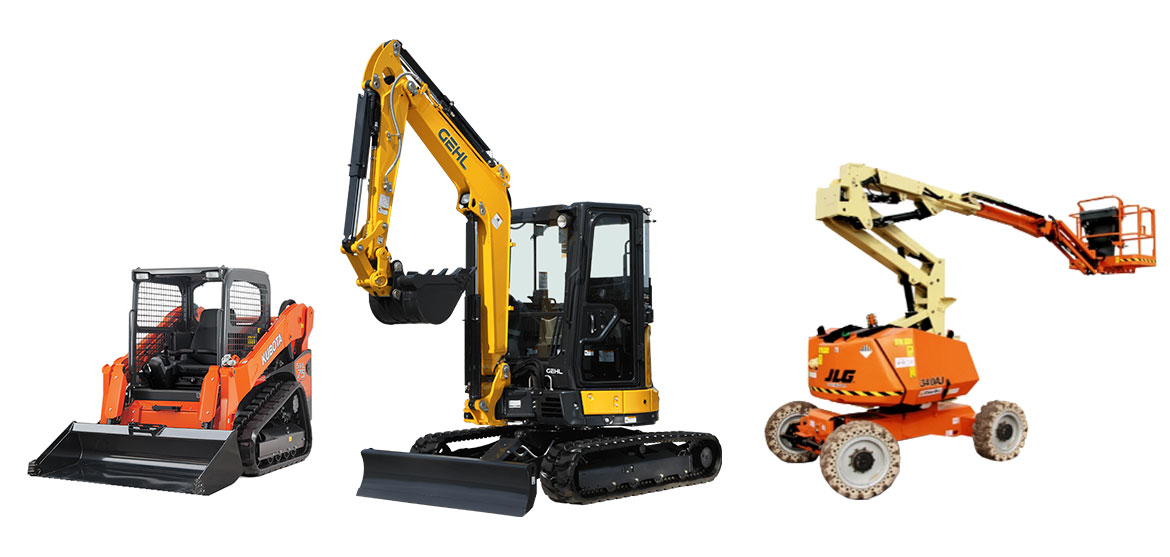Dozer Rental: Powerful Earthmoving Equipment for Your Construction Needs
Dozer Rental: Powerful Earthmoving Equipment for Your Construction Needs
Blog Article
Optimize Your Spending Plan by Understanding the Prices Related To Construction Tools Leasings
Understanding the full range of prices associated with building tools services is crucial for maximizing your budget plan. What approaches can be employed to effectively take care of these prices and ensure a more effective rental experience?
Introduction of Rental Prices
When considering building and construction devices services, comprehending the associated prices is critical for reliable budgeting and project preparation. Rental expenses can differ substantially based upon several variables, including devices kind, period of service, and location. The preliminary rental cost frequently mirrors the equipment's market demand and its linked operational abilities, influencing the total expense.
Along with the base rental price, secondary costs may arise, such as transportation charges, gas surcharges, and maintenance fees. It is important to represent these added expenditures to accurately evaluate the overall cost of renting out tools. The rental period can affect prices; longer services might certify for affordable prices, while temporary services may incur higher day-to-day charges.

Break Down of Rental Prices
A comprehensive understanding of rental rates is essential for contractors and task supervisors aiming to optimize their budgets. Rental prices for building and construction devices normally are composed of several components, consisting of base rates, time-based charges, and usage fees.
Base prices are the core fees connected with the service of the devices, often determined by the kind and size of the machinery. These prices can vary dramatically, influenced by factors such as tools demand, schedule, and regional market fads. Time-based costs, which might be daily, weekly, or monthly, serve to fit different job timelines and rental durations.
Furthermore, rental rates might include use charges, which are applicable when tools is made use of past a defined limit, making sure that the rental company can make up deterioration. Seasonal demand changes can also impact rental prices, with peak building seasons commonly commanding greater prices.
Additionally, recognizing the rental business's plans concerning upkeep and insurance can supply further understanding into the general price framework. By analyzing these elements, specialists can make educated decisions, making sure the choice of rental tools straightens with both project demands and spending plan restraints.
Additional Fees to Consider
Comprehending the ins and outs of extra charges is critical for professionals to manage their overall rental expenses efficiently. Past the standard rental prices, numerous supplementary charges can significantly influence the total cost of tools service. These charges commonly consist of delivery and pickup costs, which can differ based upon distance and logistics associated with delivering the tools to and from the task site.
Furthermore, some rental companies might enforce fuel surcharges if the equipment is returned with less fuel than when rented. It is additionally necessary to know prospective cleansing charges, especially for specific equipment that requires detailed upkeep after use.

Thoroughly reviewing the rental agreement and clarifying these added fees ahead of time can assist contractors ensure and prevent unanticipated expenses that budgets continue to be intact throughout the job lifecycle.
Maintenance and Repair Service Expenses
Routine repair and maintenance expenses are commonly overlooked aspects that can significantly affect the total cost of building and construction equipment leasings. When renting out equipment, it is vital to think about not just the rental costs but likewise the possible prices related to maintaining the machinery in ideal operating problem.
Several rental companies include standard maintenance as part of the rental arrangement; nonetheless, more comprehensive repair services or unexpected malfunctions can cause extra expenditures. It's important to examine the rental agreement very carefully to recognize what upkeep solutions are covered and what duties fall on the renter.
Additionally, equipment that is not well-maintained can result ton digger in ineffectiveness on duty website, possibly creating delays and boosting project costs. To mitigate these risks, it is suggested to conduct normal examinations and keep open interaction with the rental supplier relating to any type of problems that occur during use.
Insurance and Liability Expenses
Insurance policy and responsibility expenses are vital elements that can dramatically influence the overall expenditure of building and construction devices rentals (scissor lift rental). These costs make certain that both the rental business and the client are shielded from prospective financial losses emerging from mishaps, damage, or theft throughout the rental period

Additionally, customers should be conscious of any kind of deductibles or exclusions in the insurance coverage plan, as these can impact potential out-of-pocket costs. Recognizing the terms of any type of insurance policy protection is vital to stay clear of unforeseen expenses. Ultimately, budgeting for insurance coverage and liability expenses can aid guarantee a smoother rental experience and secure versus economic risks connected with building projects.
Final Thought
In final thought, an extensive understanding of the costs linked with building and construction devices leasings is vital for effective budget monitoring. Eventually, informed decision-making pertaining to tools services contributes to the total success of building endeavors.
Rental prices can vary substantially based on a number of factors, consisting of devices kind, duration of leasing, and location (mini excavator rental). The rental period can influence prices; longer services may certify for discounted prices, while short-term services may incur greater daily fees
By carrying out complete research and involving with respectable rental firms, specialists can effectively navigate the complexities of rental pricing, eventually maximizing their monetary sources.
Beyond the standard rental rates, numerous supplemental costs can significantly affect the complete expense of tools leasing. Rental firms frequently supply liability insurance policy that covers injuries to third parties or damage to home, while devices damages insurance can cover the cost of fixings or replacement if the rented devices is harmed.
Report this page